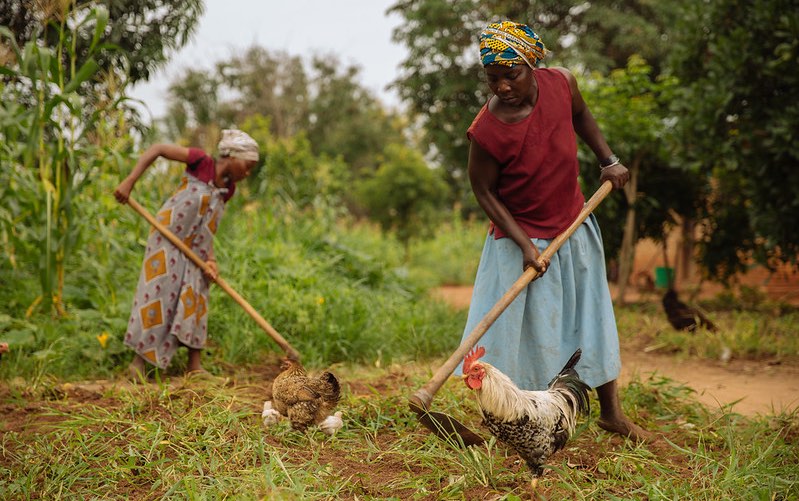As part of the MsCCAFS course, I have completed a research project which analysed the initiatives of agricultural development projects that benefitted marginalised groups. This post will concentrate on the initiatives that are focused on supporting the empowerment of rural females in three projects located in Zambia. The three projects in question are the Rural Finance Expansion Programme 2013 – 2022 (RUFEP) funded by IFAD, the Strengthening Climate Resilience of Agricultural Livelihoods in Agroecological Regions I and II 2018 – 2025 (SCRAL) funded mainly by the Green Climate Fund, and the Zambia Strengthening Climate Resilience Phase II Project 2013 – 2022 (PPCR) funded by the World Bank. Here, we’ll focus on just some of the initiatives and the variety between the projects and their ambitions.

All three projects exclaim how their initiatives enable the empowerment of women within the agricultural sectors of their regions. RUFEP specifies an initiative called the Gender & Poverty Responsiveness Checklist, which is designed to enable women and men, even those that cannot read or write, to identify their ambitions, and subsequently plan their lives and enterprises. This is expected to initiate policies that enhance gender equality and women’s empowerment. Both SCRAL and PPCR emphasise the importance of enhancing the decision-making positions of women within their own communities and organisations. SCRAL specifies enhanced empowerment of female decision-making relating to the sustainable development of water resources and the uses of water. PPCR highlights the importance of ensuring that women can comprehensively participate in community planning meetings. Usually, people with a higher social and economic status (mainly men in a rural context) tend to benefit from intra-community dynamics and can also be manipulative towards vulnerable groups. Therefore, it is specified by the project how important an emphasis on including the more vulnerable groups is, and that their inclusion is established early.
A slight difference noted between SCRAL and both PPCR and RUFEP is that SCRAL shows a greater emphasis on promoting women to take on leadership roles. In contrast, PPCR highlights increasing the participation of women while there is less of an emphasis on leadership. RUFEP specifies plans to integrate gender equality workshops into the financial institutions that they plan to work with. These workshops will provide gender-specific training for staff and enlighten them on potential inequalities that could occur among project beneficiaries. But again, there is not much mention of enhancing female leadership. The SCRAL project, on the other hand, has the ambition to achieve a 40% representation of women in leadership positions of water management associations. The empowerment of women in these positions is projected to aid female and male farmers to adopt climate smart adaptation measures, increase yields, achieving higher incomes, and alleviate food insecurities. Comparatively, PPCR illustrates how the establishment of women’s groups in communities is highly important, and that they are headed by women. While there is mention of establishing women-headed groups, there is not as much emphasis on integrating women into leadership roles in already established groups and institutions.
These projects, even though they are ongoing in the same county, all have differing ambitions of what they want to achieve in terms of gender empowerment in their project regions. This heterogeneity was apparent throughout my research with each of the agricultural development projects illustrating different vulnerabilities of marginalised groups and subsequently differing initiatives to alleviate these vulnerabilities.
References:
GCF 2018. Strengthening climate resilience of agricultural livelihoods in AgroEcological Regions I and II in Zambia. Funding Proposal.
IFAD 2014. Rural Finance Expansion Programme. Programme Design Report.
WORLDBANK 2013. Zambia Strengthening Climate Resilience (PPCR Phase II) Project. Project Appraisal Document